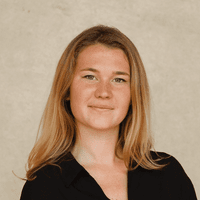
The European Parliament must maintain the 150 LSU threshold for the IED, not give the livestock sector another free pass.
The Industrial Emissions Directive should serve as an effective measure to prevent pollution by targeting the biggest emitters in the sector and safeguarding animal welfare.
Brussels, 16th March 2023. Following the Council decision to increase the threshold for industrial livestock farming to 350 Livestock Units (LSU) for pigs and cattle and to 280 LSU for poultry, FOUR PAWS urges decision makers to implement strict pollution prevention measures and animal welfare safeguards for the biggest emitters of the sector.
During today’s ENVI Council meeting, EU Members States decided on their position for the revision of the Industrial Emissions Directive. In a disappointing move, the ministers have backtracked from the Commission’s initial proposal to extend the scope of the Directive to cover the most polluting livestock farming installations. Compared to the original threshold of 150 Livestock Units (LSU), the Council’s stance would only include farms with 350 LSU or more for pigs and cattle and with 280 LSU or more for poultry.
The change would mean that farms rearing up to 20,000 laying hens (rather than 10,714) or up to 1,167 pigs (rather than 500) would be excluded from the IED on the basis of protecting “small family farms”. At the same time, the ministers did not correct the lighter permitting system proposed by the Commission, which would see the largest installations benefit from looser obligations and with no distinctions from the relatively smaller farms. These developments endanger the targets under the Global Methane Pledge, the European Green Deal and the Zero Pollution Goals.
Another change introduced by the Member States sees the exclusion of extensive farms, defined as those with stocking densities of 2 LSU per hectare or less. Such a criterion is needed to differentiate between farming models and encourage a transition towards more sustainable and animal-welfare-friendly models. This is the way forward, as more extensive farms with species-appropriate stocking densities also ensure better environmental protection and higher animal welfare. However, the misleading method for the calculation of the farm’s extension (as it also includes land use for growing fodder and for forage) and the threshold need to be improved on.
Sophie Aylmer, Head of Farm Animals and Nutrition Policy at FOUR PAWS said: “The European industrial livestock sector contributes significantly to environmental and climate damages, putting public and animal health at risk and contributing to 53% of EU methane emissions.
“If the EU is serious about meeting its sustainability commitments, it is not time to give the sector another free pass. If ministers want to protect small-scale farmers, they need to set stronger obligations for the biggest polluters. That is why we call on the European Parliament to support a threshold of 150 LSU together with a better stocking density criterion, allowing for strong pollution prevention measures to be applied to industrial livestock farming.”
ENDS

Morgane Speeckaert
EU Communications Coordinatormorganecatherine.speeckaert@four-paws.org
+39 331 365 4110
Rue Ducale 29, 1000 Brussels
Belgium
FOUR PAWS
European Policy Office
FOUR PAWS is the global animal welfare organisation for animals under direct human influence, which reveals suffering, rescues animals in need and protects them. Founded in 1988 in Vienna by Heli Dungler, the organisation advocates for a world where humans treat animals with respect, empathy and understanding. FOUR PAWS’ sustainable campaigns and projects focus on companion animals including stray dogs and cats, farm animals and wild animals – such as bears, big cats, orangutans and elephants – kept in inappropriate conditions as well as in disaster and conflict zones. With offices in Australia, Austria, Belgium, Bulgaria, Germany, Kosovo, the Netherlands, Switzerland, South Africa, Thailand, Ukraine, the UK, the USA and Vietnam as well as sanctuaries for rescued animals in twelve countries, FOUR PAWS provides rapid help and long-term solutions. www.four-paws.org
